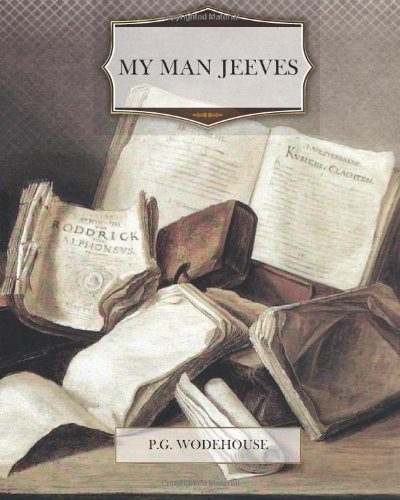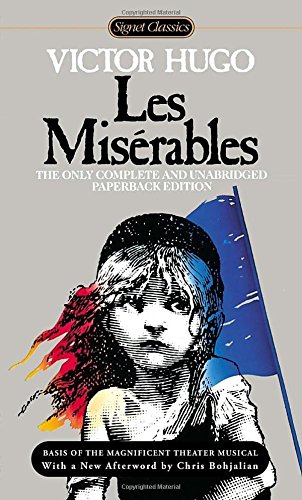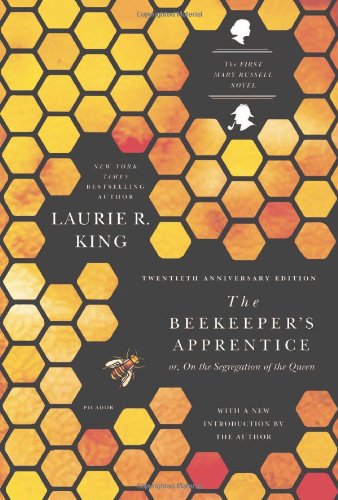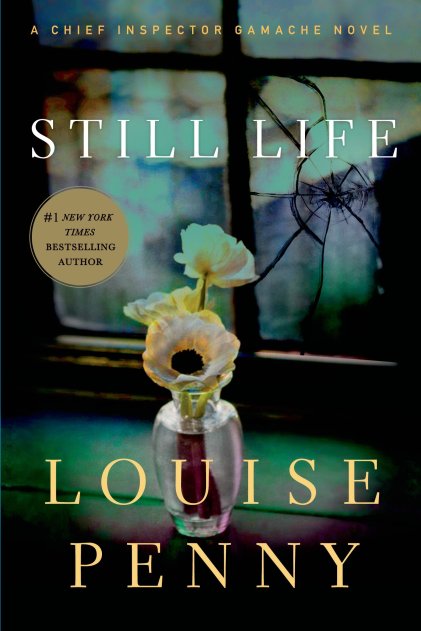I don’t know what the news is like in your corner of the world, but the headlines in my area are pretty bleak—violence, hatred, and little too much reality TV creeping into my reality. While Plan A for today was to celebrate National Chocolate Day, I’m going with Plan B: Books so engrossing that you can momentarily forget whatever is currently on your mind. I hope one of your old favorites (or, even better, a new one) is in the mix.
1. My Man Jeeves
 Wondering how a story of a privileged dimwit and his personal gentleman can possibly be relevant to today’s world? It may not be, and that may be what I like best about it.
Wondering how a story of a privileged dimwit and his personal gentleman can possibly be relevant to today’s world? It may not be, and that may be what I like best about it.
I thought P.G. Wodehouse would be too stiff for even my starchy taste, but when a surfeit of Audible credits, a penchant for English inflection, and a severe bout of insomnia conspired against me, I feel into the sweet trap of these delightful stories.
Wodehouse is laugh-out-loud funny and can turn a phrase so fresh that a lingering scent of salt sea air caresses your permanent smile. Even as disaster falls, which it inevitably must when a certain Bertie Wooster is about, Wodehouse discusses it with a dab hand, making you feel a sense of recognition, perhaps even nostalgia, for the perpetual shadow of impending mayhem:
“Unseen in the background, Fate was quietly slipping lead into the boxing-glove.”
Ah, P.G.! Even thoughtful enough to craft your nom de plume after the world’s best teabags.
These are books which I can heartily recommend in audio as well as print. There’s also a delightful BBC version starring a very young Stephen Fry (Jeeves, of course) and an impossibly young Hugh Laurie, available on Acorn.
2. Les Miserables

I will stipulate that, rip-roaring as his jingles are, a certain Broadway type makes it quite difficult to see the number 9430 and not wonder what happened to 24601. C’est la vie.
This is a masterwork of a caliber that helps you understand where the word masterwork came from. It is utterly great. Leo Tolstoy described it as among the greatest—if not the greatest—work in literature. That’s a heck of a blurb even if he did not have the foresight to anticipate the work of Stephanie Meyer. (No hate here; I read them.)
Victor Hugo‘s works are not satisfied with merely describing the best of humanity; they elevate the reader. You are a better person after you read this. They ought to have prisoners read this instead of making license plates. (Although, given Valjean’s talent for avoiding capture, I can see why that idea might have been nixed.)
Personal story: When taking my vast gaggle to the library (But Mom, there’s nothing to read in our house [Criminey!]), my oldest, then in his early teens, plucked this off the shelf, walked up to my harried self and said, “Can I get this one?” “My son!” I cried, through misty eyes, spooking the browsers. He did, in fact, read it and does not currently lead a life of crime. My eternal gratitude, M. Hugo.
3. The Beekeeper’s Apprentice

I used to look upon genre fiction with the same sort of disdain that most American women have for my housekeeping. “Sure it’s fine for all and sundry, but I have a degree in reading. I should set my sights higher,” thought ignorant I.
Predictably, like all those who forget why they do a thing in the first place, I began to [true confesh alert] lose my passion for reading. I would dutifully plod through the “suitable” bestsellers and try to get interested in Silas Marner (I’m sorry, Mary Ann). But that flickering box in the corner was starting to catch my eye. “Maybe if I watched Dynasty, I’d be able to keep up with the office chit-chat,” thought criminally ignorant I.
Smart Friend to the rescue. (If you don’t have one, get a Smart Friend. Get as many as you can find. They are just amazingly useful and delightful ways to populate those parts of your life that cannot hold books or are not amenable to dusting.) She must have tried to sell me on Laurie R. King (and Dorothy Sayers! Yes, I thought myself too highbrow for Sayers!) a half-dozen times before I relented.
“It’s Sherlock Holmes.” (Meh. [NB: Mr. Cumberbatch was in nappies.])
“There’s a young woman.” (Whatevs. Not waving the feminist flag in my imaginary worlds.)
“She’s really smart.” (Mild interest, smart people having recently become an interest of mine.)
“She’s Jewish and she studies theology at Oxford.” (Hello.)
“In the Victorian era?”
“Yep.”
“And the writing?”
“Really good.”
Thus did my Smart Friend set me on a course of devouring the twenty or so books in the series (I have a signed copy of the latest, The Murder of Mary Russell) and, by encouraging me to read things just because they were interesting (an entirely new idea to me), may well have saved me as a reader. Eternal gratitude, Smart Friend.
Beekeeper is the first book in the series, and this is one where it’s best to go in order.
4. Still Life

Another Audible discovery, this series by Louise Penny is utterly delicious. Most of the audios were voiced by the incomparable Ralph Cosham and get this listener’s highest praise.
Still Life (again, take this series in order) is the perfect cozy: Small community (you will fall in love with this town), well-crafted characters (ditto), classic detective (double ditto). It is gentle. There are pine breezes and fresh-baked croissants and homespun people who, as Canadians, are not so rural as to offend.
Penny spoke at BEA in May and she was as charming, as deep, and as human as her work. A person could cry listening to her talk about the reason she writes. A person may, in fact, have done so.
Penny is also wickedly smart and drops in plenty of wit. A favorite line comes later in the series when a woman is searching for her son who, for reasons not briefly related, is named Havoc.
“‘Havoc!’ his mother cried, letting the dogs slip out as she called into the woods.”
Yes, please. More of this. Whenever this old world starts getting you down, make a cup of tea and settle down for a braincation in Three Pines.
When you’re wondering what to read next, here’s wishing you many breaks from reality of the non-psychotic kind.
